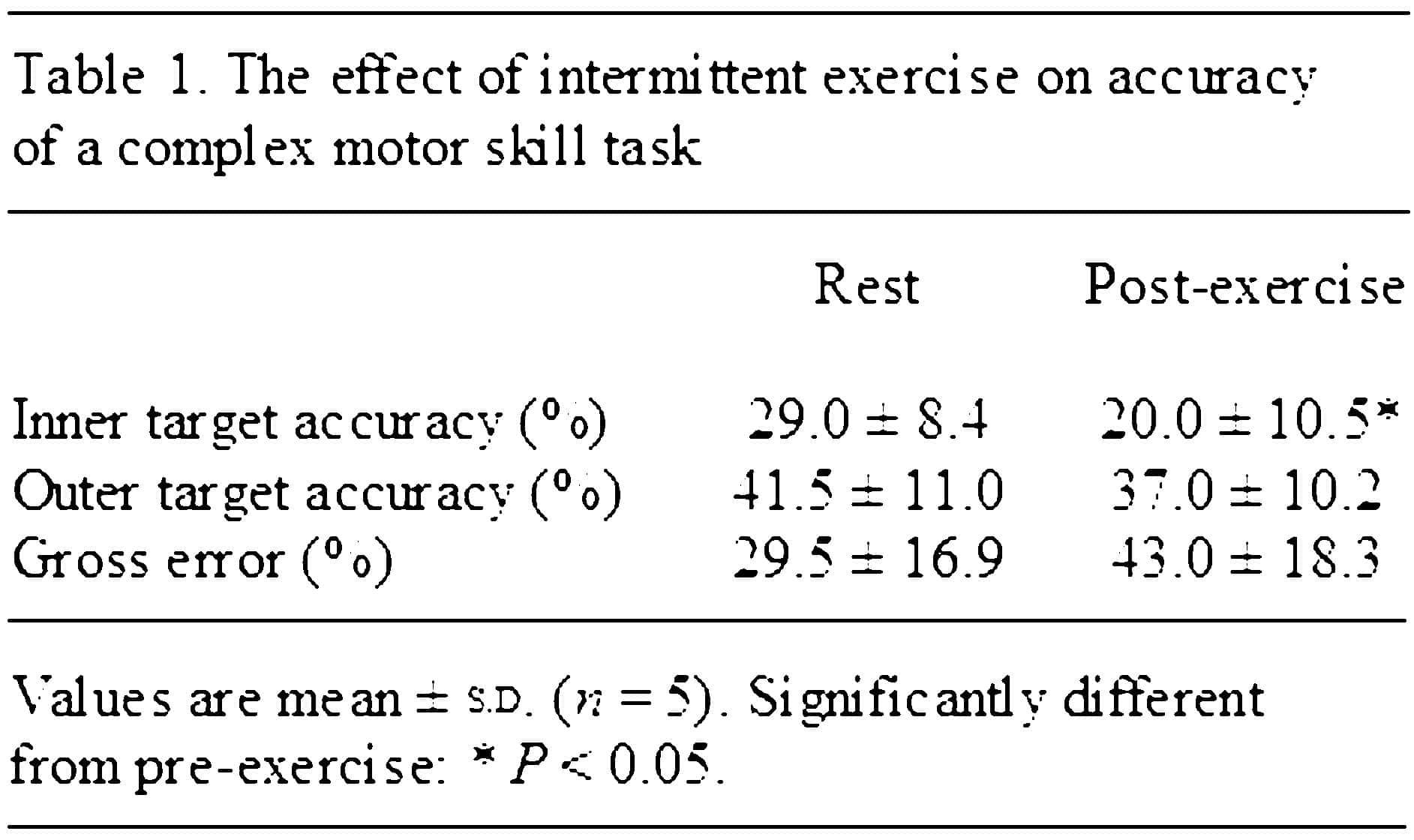Intermittent exercise attenuates performance of motor skills with a ‘speed’ criterion (McGregor et al. 1999) and imparts a greater thermoregulatory strain (Kraning & Gonzalez, 1991) compared to continuous exercise. Therefore, the aim of this study was to examine the effect of strenuous, intermittent exercise on performance in a complex motor skill task with an ‘accuracy’ criterion.
Five healthy male subjects (age 23.4 ± 5.6 years, height 1.80 ± 0.02 m, body mass 73.9 ± 4.6 kg, maximal Î{special}J{special} 62.3 ± 7.2 ml kg-1 min-1; mean ± S.D.) completed a complex motor skill task before and immediately after an intermittent exercise challenge (Sherman et al. 2003). Subjects gave written, informed consent prior to the study, which had prior local ethics committee approval. Core body temperature (Tc) was monitored every 60 s using an ingested telemetry pill and changes in heart rate (HR) were measured every 15 s. Venous blood samples were obtained from a superficial forearm vein, at rest and after exercise, to determine concentration of whole blood glucose and lactate (La). Subjects consumed water ad libitum during each rest period. Body mass loss was corrected for volume of water ingested. Student’s paired t tests were used to identify any differences, pre-vs. post-exercise. Level of significance was set at P < 0.05.
Inner target accuracy was lower (P < 0.05) after intermittent exercise (Table 1), but Tc (pre, 37.3 ± 0.4 °C, post, 38.9 ± 0.6 °C, P < 0.01), HR (pre, 132 ± 14 beats min-1, post, 169 ± 9 beats min-1, P < 0.01) and La concentration (pre, 0.85 ± 0.19 mmol l-1, post, 1.85 ± 0.73 mmol l-1, P < 0.05) were increased. Body mass loss was 1.41 ± 0.54 kg and equivalent to 1.89 ± 0.62 % of pre-exercise body mass.This study provides preliminary evidence that increased thermoregulatory strain is temporally associated with decreased accuracy of a complex motor skill task.

